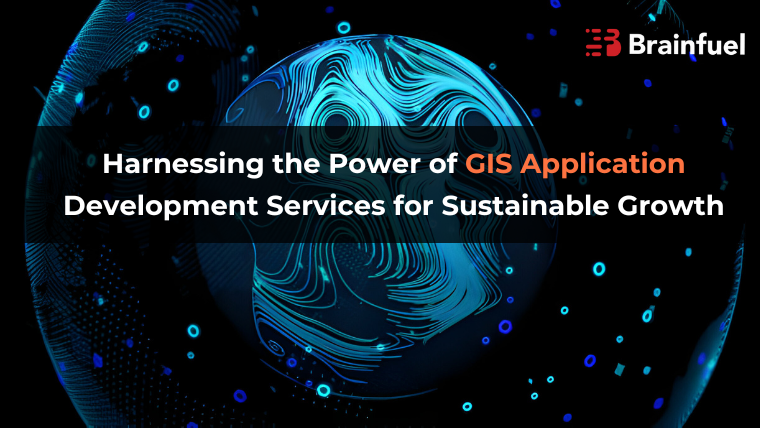Harnessing the Power of GIS Application Development Services for Sustainable Growth
In an era marked by increasing environmental awareness and social responsibility, businesses are increasingly seeking ways to achieve sustainable growth while minimizing their impact on the planet. Geographic Information System (GIS) technology has emerged as a powerful tool for advancing sustainability goals by enabling organizations to leverage spatial data for informed decision-making, resource optimization, and environmental stewardship. In this blog, we explore how GIS application development services can help businesses drive sustainable growth and make a positive impact on the world.
1. Sustainable Resource Management: GIS applications enable businesses to optimize resource management practices by integrating spatial data with advanced analytics. Whether it’s minimizing energy consumption, reducing water usage, or optimizing waste management processes, GIS technology provides valuable insights that help organizations operate more efficiently while minimizing their environmental footprint.
2. Climate Change Adaptation: With the increasing frequency and severity of climate-related events, businesses are facing growing challenges in adapting to changing environmental conditions. GIS applications provide valuable tools for assessing climate risks, identifying vulnerable areas, and developing adaptive strategies to mitigate the impact of climate change on operations and infrastructure.
3. Conservation and Biodiversity Protection: GIS technology plays a crucial role in conservation efforts by enabling organizations to monitor and manage natural resources, protected areas, and biodiversity hotspots. Whether it’s mapping endangered species habitats, tracking deforestation trends, or identifying areas for habitat restoration, GIS applications provide valuable insights that support conservation initiatives and environmental stewardship.
4. Sustainable Urban Planning: In rapidly growing urban areas, GIS applications help facilitate sustainable urban planning and development by providing valuable insights into land use, transportation networks, and infrastructure needs. Whether it’s optimizing public transit routes, identifying locations for green spaces, or mitigating the impact of urban heat islands, GIS technology enables cities to plan and manage growth in a way that balances economic development with environmental sustainability.
5. Renewable Energy Deployment: GIS applications play a crucial role in the deployment of renewable energy resources such as solar, wind, and hydroelectric power. By analyzing factors such as solar irradiance, wind speed, and topography, GIS technology helps identify suitable locations for renewable energy projects and optimize their performance for maximum efficiency and sustainability.
6. Corporate Social Responsibility (CSR): GIS technology enables businesses to demonstrate their commitment to corporate social responsibility (CSR) by transparently reporting on environmental performance, social impact, and sustainability initiatives. Whether it’s visualizing CSR metrics on interactive maps, tracking progress towards sustainability goals, or engaging stakeholders through geospatial storytelling, GIS applications help businesses communicate their sustainability efforts effectively and build trust with customers, investors, and communities.
7. Stakeholder Engagement and Collaboration: GIS applications facilitate stakeholder engagement and collaboration by providing a common platform for sharing spatial data, conducting analysis, and making informed decisions. Whether it’s collaborating with government agencies, NGOs, or local communities on sustainability projects, GIS technology enables businesses to foster partnerships, leverage collective expertise, and drive meaningful change towards a more sustainable future.
In conclusion, GIS application development services offer a powerful toolkit for businesses seeking to achieve sustainable growth and make a positive impact on the world. By harnessing the power of spatial data and advanced analytics, businesses can optimize resource management practices, adapt to climate change, protect natural ecosystems, and promote environmental stewardship. With the right partner and expertise in GIS technology, businesses can unlock new opportunities for growth and innovation while advancing their sustainability goals in a rapidly changing world.









